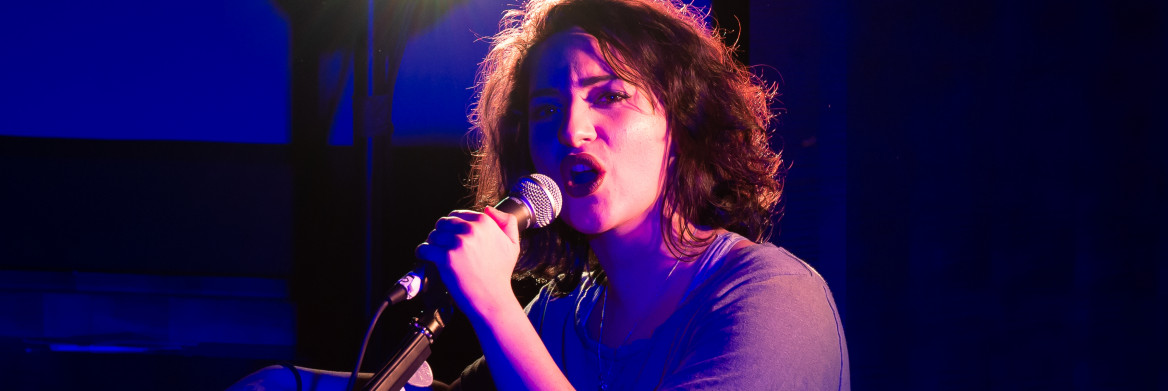The 550 teenagers filing into the auditorium of a school in Dawson Creek, B.C., are glassy-eyed and skeptical. Even when the curtain opens on Love Bomb, a gritty modern musical about how anyone can become a victim of human trafficking, they're expecting the usual.
But when an actor suddenly drops the F-bomb, the crowd erupts in delighted surprise. Just as suddenly, they go silent when the next line is delivered. And like that, they're hooked.
It happens all the time, according to RCMP Cpl. Sue Harvey, a supervisor in the Indigenous Policing unit in Alberta.
"They've heard safe talks before but, with this, they're actually listening," says Harvey, who developed the project, co-ordinating more than 60 shows in schools and communities across British Columbia, Alberta and Saskatchewan since 2016.
The musical, which was written using real-life police cases, is part of a partnership project between the RCMP and Shameless Hussy Productions to raise awareness about the dangers of sex exploitation in Canadian communities. Harvey says eliciting this kind of reaction is what makes it so powerful.
"Youth love their headphones and music is universal, so it's a good way to tie in education," says Sgt. Stephanie Ward, who works in Indigenous Policing with Alberta RCMP.
Ward says people who've seen the performance often say they didn't think human trafficking and sex exploitation happened in their small communities. But she says these crimes are more common than people think.
The RCMP laid human-trafficking charges in 401 cases between 2005 and 2017, according to the Human Trafficking National Coordination Centre.
"We have young girls and guys, maybe dealing with issues at home, leaving with no self-esteem, craving love and attention. And the pimps use that," says Ward, referring to the phenomenon that some call love bombing. "They pose as boyfriends to draw them in — give them stability, gifts, affection. Then they use violence and scare tactics to keep them from leaving."
After each show, the audience is invited to participate in discussion sessions that give them the chance to ask questions about what they've seen. The talks are led by a panel of actors, police officers and partnering agencies who use local statistics to dispel misconceptions about human trafficking and educate on the topic.
Ward has participated in five of the sessions.
The effect of Love Bomb is even reaching past the youth. According to Harvey, the information presented in the show and during discussion sessions has helped police in some communities.
"Investigations have been started that may not have been started prior to us being there because the incident would have been misidentified as something else like prostitution, drugs or theft," says Harvey, who adds that human-trafficking awareness is critical.
"The power of the music itself has the ability to cross every social barrier and get across to communities big and small, young and old, that we need to be aware of it to keep people safe," she says.
